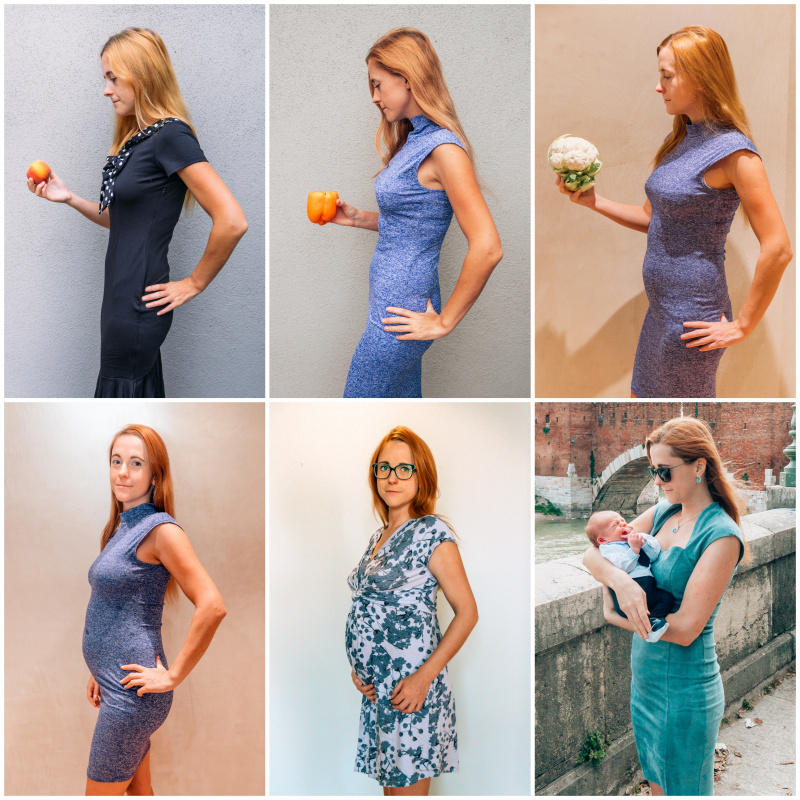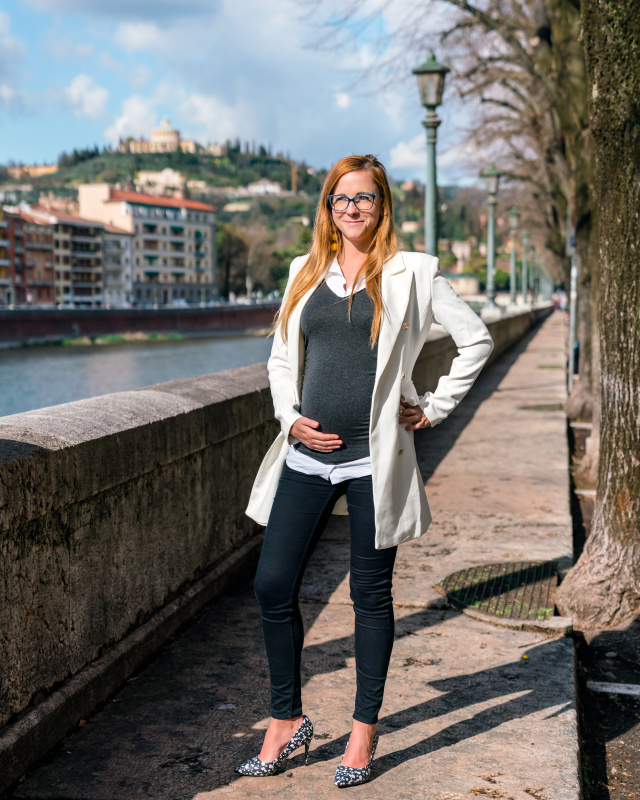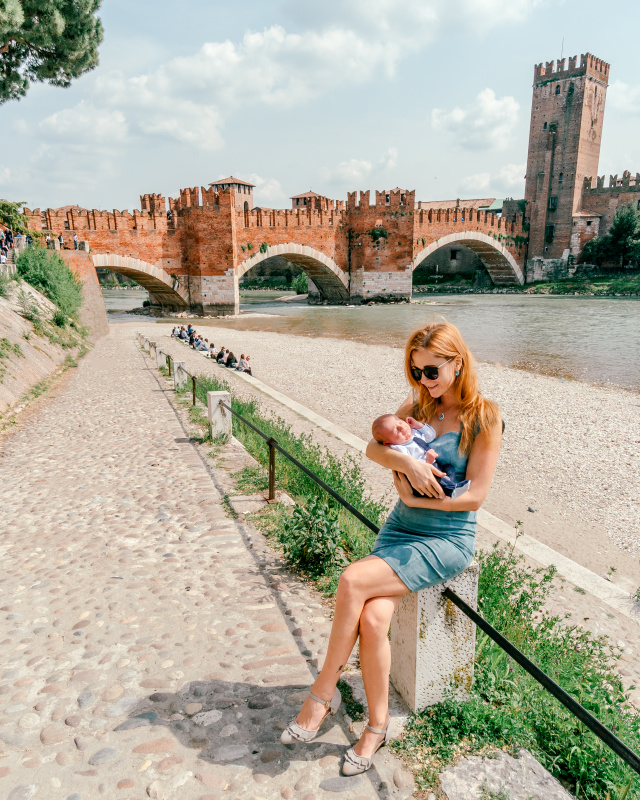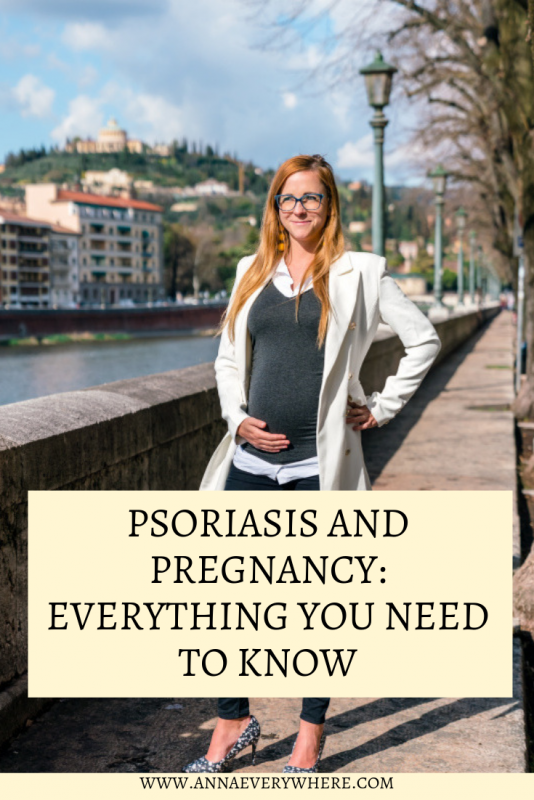While I wasn’t originally planning on writing more posts on psoriasis, when I got pregnant I realized that there isn’t much information out there on pregnancy with psoriasis.
What’s even worse is that the vast majority of gynecologists and obstetricians don’t really know much on that topic, since naturally, they cannot know everything about every type of illness and medicine that can correlate, or not, with your pregnancy.
If you start reading any forums, all you’re going to find out is that everything will kill you as it’s dangerous, you’ll feel the worst of your life when pregnant, and just wait until you have a baby because then you definitely won’t have a life. Sounds exciting to become a mom, doesn’t it?
Disclaimer: This post is written based on medical research and my personal experience. Please keep in mind that one person’s experiences might be different from mine.
Don’t Feel Scared to Get Pregnant and Have a Baby
One thing I’ve learned during pregnancy is that other pregnant women and moms love to scare others. Everyone will have an opinion and tell you that you get certain symptoms. Truth to be told, every pregnancy symptom I was surely going to have according to other moms, I did not get.
How come? Because everyone is different, and while your doctor or research will tell you about some common symptoms it does not mean that you, in particular, will feel the same way your friend did or didn’t.
Why am I telling you this? If you’re reading this post it means that you’re either curious about my psoriasis story or have psoriasis (or really any other autoimmune disease) and want to find out what’s going to happen to you and your baby during pregnancy. And this can be scary!

Psoriasis and Pregnancy: Everything You Need to Know
My Experience with Psoriasis During Pregnancy
While I’m not a doctor, I was forced to self-treat my severe psoriasis for years and learned a lot in the process. Not from online forums or WebMD, but from real medical papers and studies.
Methotrexate & Pregnancy
I was on methotrexate for over a year, when I decided that I wanted to get pregnant. Methotrexate for psoriasis is very dangerous for pregnancy and this is why many doctors require you to get on birth control and do regular pregnancy tests to make sure you won’t get accidentally inseminated.
While it’s unlikely that your baby survives, as methotrexate is used to treat ectopic pregnancies and to cause spontaneous abortion, if it somehow does then it might be seriously damaged. This is why it’s really important to get off these meds.
Is It Harder to Get Pregnant with Psoriasis or Other Autoimmune Disease?
Before my pregnancy, I was given misinformation that my methotrexate therapy and psoriasis could affect my fertility. A study published in the British Journal of Dermatology found that pregnant women with psoriasis may be at increased risk for pregnancy complications and the rate of miscarriage is 15% to 20% and some dermatologists will warn you about it.
It turned out that this study was false and these days many publications contradict it. It’s now known that methotrexate does not affect a woman’s long-term potential of conceiving a healthy child. Neither does psoriasis affect your chances of getting pregnant, rates of miscarriage, birth defects, or premature birth.
If a woman is having issues getting pregnant it’s because of other comorbidities and not psoriasis alone. Psoriasis is also not necessarily recessive. A third of the people with psoriasis have a family history of the disease. But that doesn’t mean a child born to someone with psoriasis will get it either.

Does Psoriasis Get Better During Pregnancy?
Many people had told me that my psoriasis would ameliorate while I was pregnant. The research indicated that nearly 75% of women will see no change in their symptoms, but psoriasis never cleared up during pregnancy. One study of 47 pregnant women with psoriasis found that 55% saw an improvement in their symptoms, but 23% reported that their symptoms worsened.
While I guess it could sometimes, it didn’t happen in my case. Sadly, I was in the 23% whose psoriasis had worsened by a TON. So quit comparing yourself to other mommas who had the best pregnancy ever with no psoriasis flare-ups.
Should I Stop My Psoriasis Medications?
That’s a tricky question and it really depends on which doctor you ask. Unless it’s methotrexate, then the answer is a definite yes.
The problem with psoriasis, even severe, is that this condition is treated differently than other autoimmune diseases. For instance, if you’re suffering from Crohn’s or Ulcerative Colitis, you’re more likely to get biological drugs and treatment covered by insurance companies as it’s classified as necessary.
For psoriasis, treatments are often classified as ‘experimental’ and aren’t covered or are partially covered which is very unfair. That said, many doctors will tell you that you can survive without your medicine. While you obviously can survive without your medicines, your quality of life will naturally decline enormously.
I’m not even talking about the psychological consequences of having a flare-up, as the two nails that fell off this morning don’t bother me anymore after many years, but physical issues. If you’re constantly in pain, itching, with open wounds everywhere and skin peeling from your scalp it’s not really the best position for a mother to care for a newborn.

Well, the good news is that for most people with psoriasis pregnancy aches and pains are a piece of cake since we’re in pain quite often and therefore are used to it. However, it’s not really good news after all.
Biologics, Psoriasis and Pregnancy
After I quit methotrexate, a few months before I got pregnant, I was put on Stelara (Ustekinumab). Stelara is a biological immunosuppressant drug containing monoclonal antibodies (all drugs named -mab contained these antibodies). Sounds complicated, I know.
Psoriasis occurs when your immune system reacts to a nonexistent danger and in response grows extra skin cells beneath the skin’s surface. Instead of every few weeks like in a healthy person, new cells are pushed up every few days.
Monoclonal antibodies are cells that are identical to your own immune cells that can enhance or mimic the immune system’s attack on your own cells. They’re used for many auto-immune diseases and cancer.
Biologics are relatively new, but the best drugs for autoimmune diseases these days. They’re insanely expensive and the retail value for a yearly supply costs about $70,000 without insurance.
Taking biological drugs during pregnancy is a complicated issue as they’re listed Category C; which means that very little information is available so the risk is unknown at this time. Therefore, biologics should be technically avoided during pregnancy and breastfeeding, but many doctors, mine included, will tell you it’s your call or that it’s fine.
Because of the limited information, biologic drugs should be used during pregnancy only if there is a clear medical need. Women considering pregnancy and pregnant women should work closely with their doctor to weigh the benefit and the risks of using these drugs and consider enrolling in a pregnancy registry.
In my case, one doctor told me that I’d be fine continuing my treatment during pregnancy and after. The second and third doctor told me it’s up to me, as it’s a woman’s decision.
As I was scared I opted against taking the drugs over the course of pregnancy, but looking back I don’t think it was the best decision in my case. If I were to get pregnant again, I’d most likely stay on my meds.
Why are the doctors saying different things? It’s not because they’re bad doctors, but conflicting data have been published about the general safety of biologic agents in pregnancy.
Pregnant women are commonly excluded from clinical trials done on biological drugs. It seems that no pharmaceutical company wants to risk it. While there are some studies, it’s mostly rats or statistics done only on up to 20 patients.
What Psoriasis Therapies Are Possible During Pregnancy?
Technically speaking, none of them apparently.
Topical steroids are supposedly not completely safe during pregnancy. According to 50% of medical articles, the other 50% says it’s fine. Other topical creams are fine on small surfaces. However, topical creams have never worked for me, possibly due to my allergy to salicylates present in many of them, so I only stuck to the Chinese cream that slows down the flares.
Photochemotherapy, also known as PUVA or more commonly UVA light radiation, is not recommended during pregnancy as its effectiveness is based on damaging cellular DNA. However, despite the advisory against it, quoting ‘there is no evidence to suggest that PUVA will damage a developing baby.’
Ciclosporin can apparently be prescribed for flares during pregnancy, but it could significantly heighten your blood pressure, so you’d be more doomed to develop preeclampsia and kidney issues. With my UTI at the end of the pregnancy I opted against it, even though I was suffering from a big flare-up.

Psoriasis After Pregnancy
The worst news is that the vast majority of women (65% of patients) experience a flare-up during postpartum, whether your psoriasis improved or worsened during pregnancy.
In my case, I don’t think my psoriasis could have got worse postpartum and it didn’t but it hasn’t improved either. Due to a complicated situation like giving birth in another country I had to wait about 2 weeks to re-start my Stelara treatment.
Breastfeeding With Psoriasis
Most package inserts for medications warn against breastfeeding while being treated with biologic agents at any point during pregnancy or after. As I was eager to start taking my meds again, I opted for not breastfeeding. Especially since a baby may be affected if the mother is breastfeeding and psoriasis leads to bleeding ulcers forming on the nipple.
There’s so much formula available these days that if both me and the baby would be suffering there’s no point of pushing things that aren’t meant to be.
However, possible bleeding ulcers weren’t the only thing that made me decide on not even doing a bit of breastfeeding.
A few studies noted that drug clearance could take up to 1 year after birth if taken or not cleared up fully during pregnancy. Which means that there’s potential for an impaired immune response in their newborn infants.
If you decide to breastfeed while on biological drugs then the immune response could be even longer. While the impact could be minimal, there was one more thing I found out about.

Child Vaccinations
Since I cannot be given any live vaccinations while on biologics my baby would not be able to receive them either for at least 12 months. If I breastfeed it could be even longer, but there is no specific data available on the safety of breastfeeding and use of other biologic agents.
Live vaccines include the MMR vaccine, and with the current measles epidemics caused by anti-vaxxers I didn’t think waiting longer would be a great idea. Hence my baby is a formula-fed baby from the beginning and he’s doing just fine.
Any questions? Comments? Post them below!







Hi Anna,
I would like to point out to you two treatments available in Dutch hospitals that are specialized in psoriasis:
Ditranol – a local treatment with no side effects apart from being very time costing and bad for your laundry.
The creme is tries to burn the skin where you have the spots.
Psorinovo: a medicine with dymethilfumaraat as working part.
If you want more information just contact me.
I’ve tried Dithranol before and no significant improvements happened.
Very information post.
Thanks
Hi,
Thanks for sharing. I have psoriasis and am TTC and I’ve only found so many negative things about psoriasis and pregnancy so it was refreshing to find this information from you.
I’m on Stelara now and planning on hopefully getting pregnant, when you were pregnant were you already on Stelara or were you already off it by that time?
As for your son now, how was it when he did get vaccinated (if he did). My goal would be delayed vaccination but there was little information on psoriasis and that subject as well.
I was already on Stelara before my last pregnancy and stopped halfway through the second trimester which was a BIG mistake. This time I’m not stopping at all, because it was a nightmare.
My son got vaccinated for everything minus live vaccines straight away. Not sure where you’re located, but in the US they don’t do live vaccinates at birth or within the first 6 months anyway. In Europe there was only TB we skipped at birth.